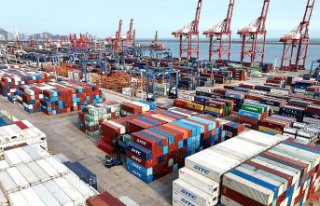Germany is still heavily dependent on Russian gas supplies. In order to secure the energy supply in view of the Ukraine war, the Federal Republic relies more on electricity from coal-fired power plants in the first half of the year. But the share of renewables is also increasing significantly.
Electricity generation from coal increased significantly in the first half of the year compared to the same period last year: between January and the end of June, almost a third (31.4 percent) of the electricity generated and fed into Germany came from coal-fired power plants, as reported by the Wiesbaden statistics office. The feed-in of electricity from coal thus increased by 17.2 percent year-on-year.
On the other hand, generation from natural gas fell to a share of 11.7 percent, after 14.4 percent a year earlier. The opposing development for coal and natural gas was particularly evident in the spring. In the second quarter alone, feed-in from coal rose 23.5 percent year-on-year, while power generation from gas fell 19.3 percent.
Overall, more than half (51.5 percent) of the electricity was still generated from conventional sources, including natural gas or nuclear power. However, this proportion has decreased: in the first half of 2021 it was still 56.2 percent. In contrast, the share of renewables increased significantly from 43.8 percent in the same period of the previous year to 48.5 percent most recently. Photovoltaics in particular increased as an energy source due to the many hours of sunshine.
Because of the Russian invasion of Ukraine, Germany is trying to make itself less dependent on the enormous energy supplies from Russia. This is particularly difficult with gas, since Germany is still very dependent on Russian supplies. Deliveries have collapsed due to alleged technical problems with the Nord Stream 1 Baltic Sea pipeline.
The use of nuclear power continued to decline - to just 6.0 percent after 12.4 percent in the first half of last year. According to the statisticians, the reason for the significant decline is the shutdown of three of the six nuclear power plants still in operation at the end of last year as part of the phase-out of nuclear energy. However, due to the energy crisis, Federal Minister of Economics Robert Habeck does not want to shut down two of the last three German reactors until April and not at the end of this year as previously planned.
A total of 263.2 billion kilowatt hours of electricity were fed into the grid in the first six months of the year. That was 1.3 percent more than in the first half of 2021. Once again, significantly more electricity was exported than imported. For the first time since statistics began in 1990, Germany exported more electricity to France than was imported in the opposite direction.












